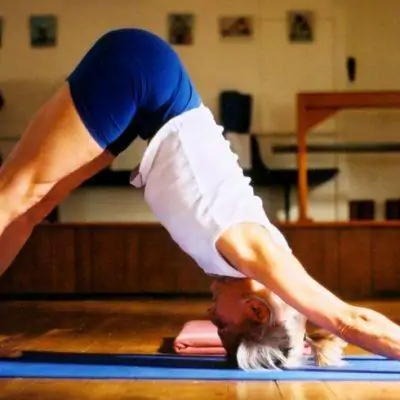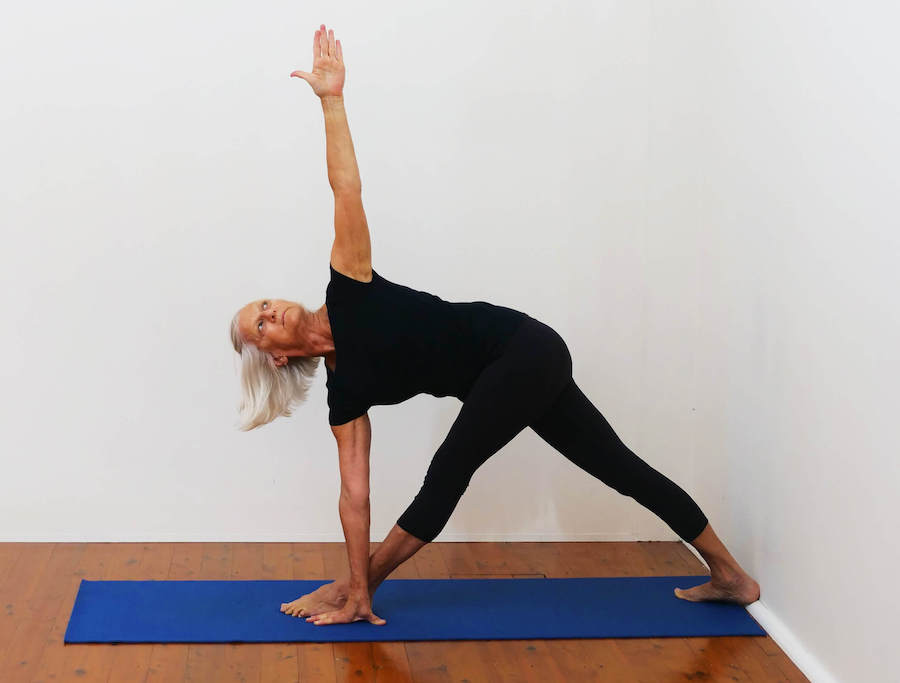Introduction
This is the first session of a 5 week Beginners course, where we use only a mat and a towel (and perhaps a book) as minimal props. The aim here is to lay the foundation for those who are new to Iyengar Yoga so that you can build up a base and get an idea of what Iyengar Yoga is, without having to invest in more than a yoga mat.
Each class will build on the previous session, repeating a few poses already explored, as well as adding a few new postures to what you have already done. It is a systematic sequencing of sessions so that you can start to develop an understanding of the principles involved in the practice of Iyengar Yoga.
Start in forward Virasana, a version of Childs pose with the feet apart. This helps to settle yourself into your body and prepare for the more active poses to come.
Come up to standing, and follow the basic instructions for Tadasana, Mountain Pose, to establish a balanced alignment to work from. From Tadasana, you will do a few arm variations to help bring some life to the shoulders and upper body.
1/2 Uttanasana to the wall, a standing forward bend with hands to the wall at two different heights to open the shoulders and the upper thoracic area.
In this course we concentrate most on the standing poses at first, as they bring opening and connection to the the hips and legs, and help to integrate the various body parts back to the centre. Notice your feet throughout, and see what tendencies you have there. What happens in the feet follows through to the rest of the legs and pelvis, and then to the upper body. You will often be asked to “check your feet”.
Four standing poses to start with, repeating each one twice: Trikonasana (Triangle Pose), Parsvakonasana (Side Angle Pose), Parsvottanasana (Standing forward bend to the side) and Prasarita Padottanasana, a wide legged forward extension to finish.
Then extend the arms up, fingers interlocked (Parvatasana) to bring uplifting energy to the chest.
Extend the legs forward to release the knees -Dandasana (Rod or Staff Pose).
Sit with simple cross-legs and turn to release the back muscles with a simple seated twist, changing the cross leg after going to Left and to the Right and walking the hands forward after finishing each side.
To finish the sequence, take the mat to the wall and lie back flat with the legs up the wall. Then bend the knees into the chest to lengthen through the spine.
Turn to the side and lie back in Savasana (Corpse Pose), the resting pose done at the end of every sequence to bring yourself back to neutral, observing a quiet breath as the body releases to the floor.
View sequence
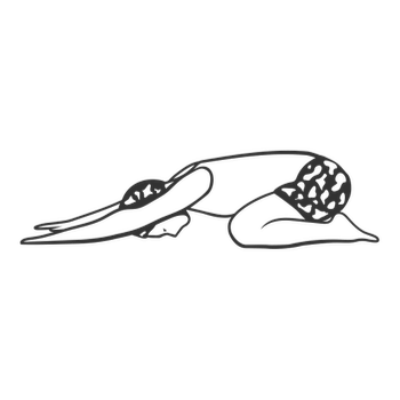
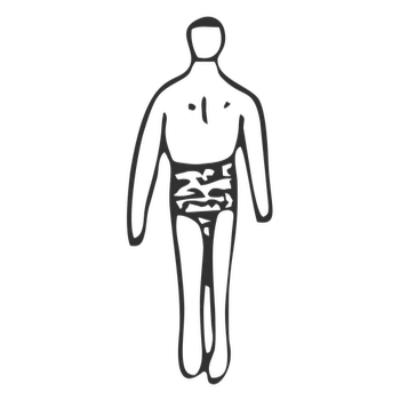
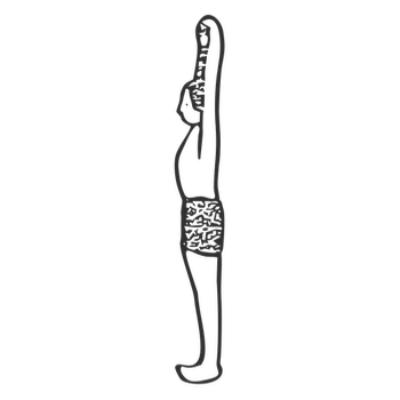
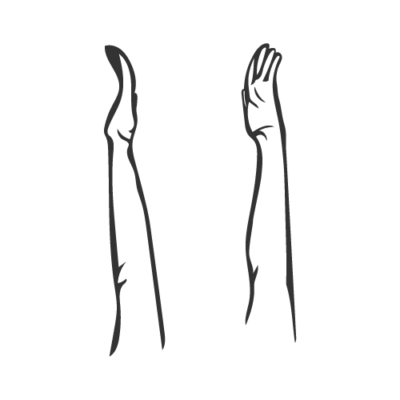
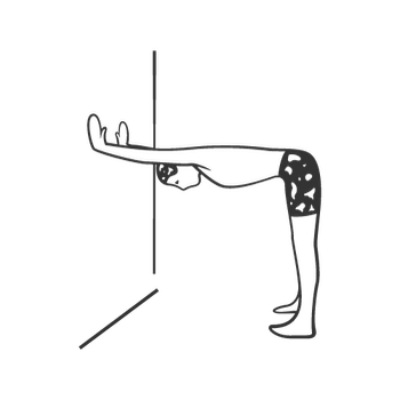

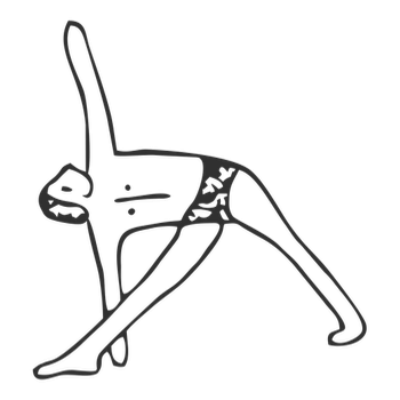
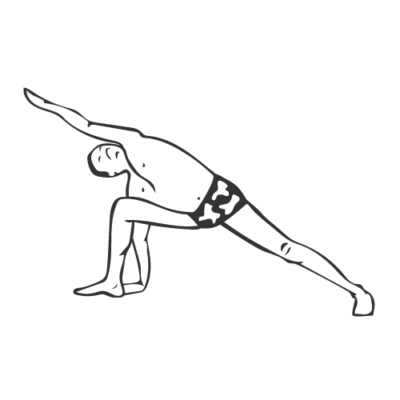
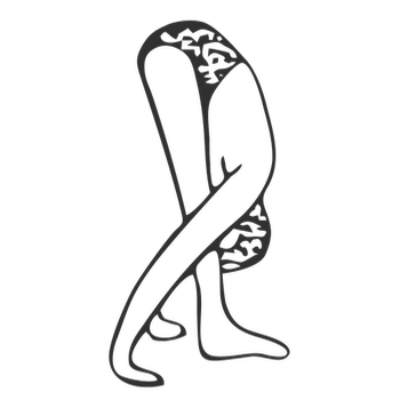

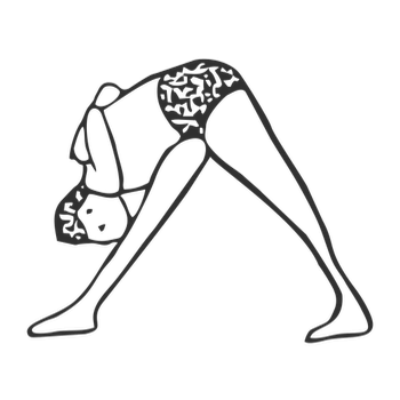
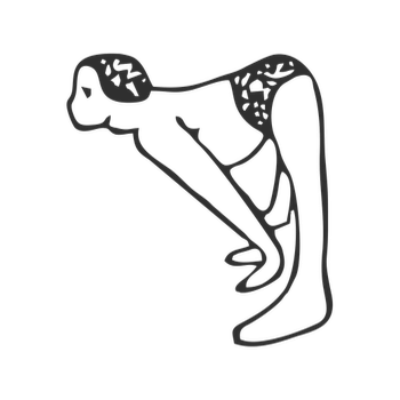
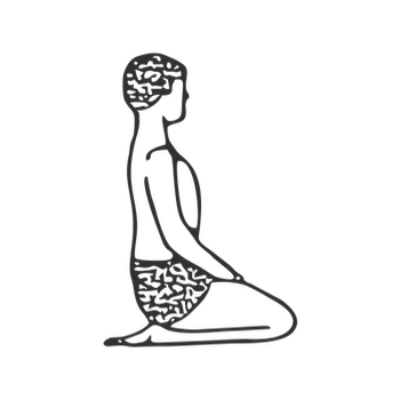
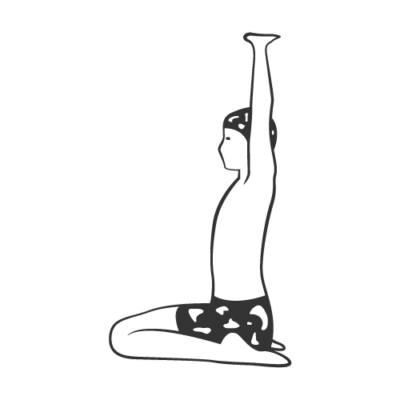
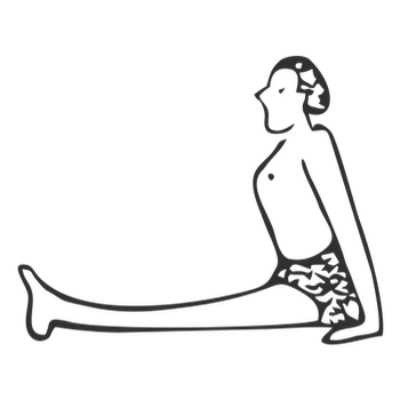
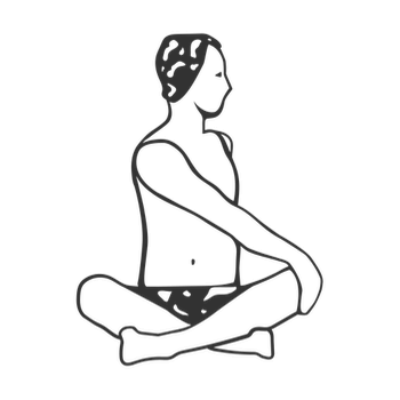
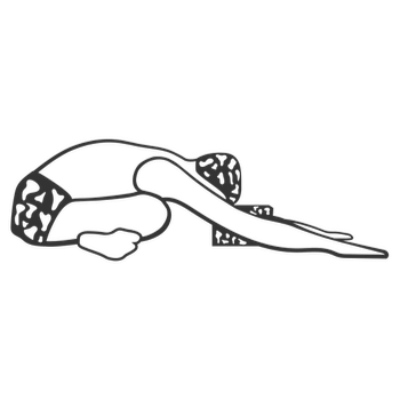
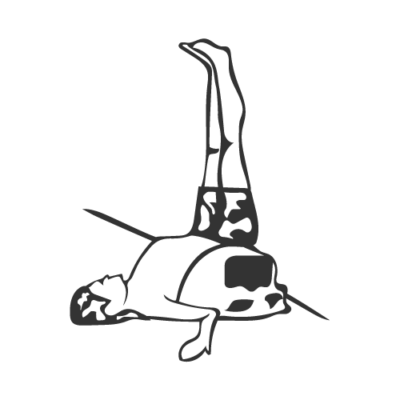
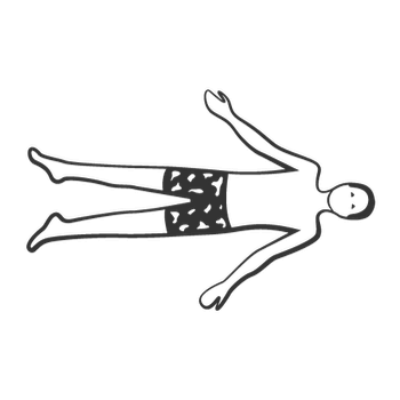
Share
Save PDF and print
You are welcome to download the PDF of the sequence and print and distribute it freely. You may have to wait up to 30 seconds for the PDF to generate. Please credit the teacher who created it. All illustrations from Dona Holleman’s ‘Yoga Darśana’, RIMYI Institute texts and Yoga Vastu illustrators for original asana drawings.
